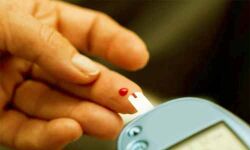- Home
- Medical news & Guidelines
- Anesthesiology
- Cardiology and CTVS
- Critical Care
- Dentistry
- Dermatology
- Diabetes and Endocrinology
- ENT
- Gastroenterology
- Medicine
- Nephrology
- Neurology
- Obstretics-Gynaecology
- Oncology
- Ophthalmology
- Orthopaedics
- Pediatrics-Neonatology
- Psychiatry
- Pulmonology
- Radiology
- Surgery
- Urology
- Laboratory Medicine
- Diet
- Nursing
- Paramedical
- Physiotherapy
- Health news
- Fact Check
- Bone Health Fact Check
- Brain Health Fact Check
- Cancer Related Fact Check
- Child Care Fact Check
- Dental and oral health fact check
- Diabetes and metabolic health fact check
- Diet and Nutrition Fact Check
- Eye and ENT Care Fact Check
- Fitness fact check
- Gut health fact check
- Heart health fact check
- Kidney health fact check
- Medical education fact check
- Men's health fact check
- Respiratory fact check
- Skin and hair care fact check
- Vaccine and Immunization fact check
- Women's health fact check
- AYUSH
- State News
- Andaman and Nicobar Islands
- Andhra Pradesh
- Arunachal Pradesh
- Assam
- Bihar
- Chandigarh
- Chattisgarh
- Dadra and Nagar Haveli
- Daman and Diu
- Delhi
- Goa
- Gujarat
- Haryana
- Himachal Pradesh
- Jammu & Kashmir
- Jharkhand
- Karnataka
- Kerala
- Ladakh
- Lakshadweep
- Madhya Pradesh
- Maharashtra
- Manipur
- Meghalaya
- Mizoram
- Nagaland
- Odisha
- Puducherry
- Punjab
- Rajasthan
- Sikkim
- Tamil Nadu
- Telangana
- Tripura
- Uttar Pradesh
- Uttrakhand
- West Bengal
- Medical Education
- Industry
Resveratrol improves blood sugar control in type 2 diabetes patients: Study

Egypt: According to a recent study in the journal Medicina Clínica, resveratrol supplementation results in better blood sugar control and improves cardiometabolic parameters in patients with type 2 diabetes mellitus (T2DM). Resveratrol is a natural phenol and phytoalexin produced by plants.
T2DM is a progressive meta-inflammatory disorder that leads to micro and macrovascular complications. Resveratrol is a nutraceutical that is known to have anti-inflammatory and antioxidant properties. It improves insulin resistance however, there is no clear evidence of its effects in T2D patients. To clarify the same, Ibrahim A.Abdelhaleem, International Medical Research Association IMedRA, Egypt, and colleagues aimed to evaluate the safety and efficacy of oral resveratrol supplementation in type 2 diabetic patients concerning dose and duration.
For this purpose, the researchers searched the online databases for RCTs that evaluated the efficacy and safety of resveratrol on patients with T2DM. The researchers screened the studies for the eligibility criteria, performed the quality assessment, extracted the studies' characteristics, baseline, and outcome data of interest, and finally conducted the meta-analysis using RevManV5.3.
The systematic review and meta-analysis included 17 RCTs with a total of 871 patients with T2DM.
The study revealed the following findings:
- The pooled effect estimate did not favor resveratrol over placebo with doses of less than 500 mg in fasting blood glucose, fasting serum insulin, and Homeostatic Model Assessment for Insulin Resistance (HOMA-IR). However, the higher doses of resveratrol (≥500 mg) were superior to placebo regarding these parameters.
- Concerning HbA1c and systolic blood pressure, the subgroup analyses showed that the pooled effect estimate favored resveratrol over placebo at three months.
The researchers concluded that resveratrol beneficially modulates glycemic control as well as cardiometabolic parameters in patients with T2DM.
Reference:
The study titled, "The effects of resveratrol on glycemic control and cardiometabolic parameters in patients with T2DM: A systematic review and meta-analysis," is published in the journal Medicina Clínica.
DOI: https://www.sciencedirect.com/science/article/abs/pii/S0025775321004723
Dr Kamal Kant Kohli-MBBS, DTCD- a chest specialist with more than 30 years of practice and a flair for writing clinical articles, Dr Kamal Kant Kohli joined Medical Dialogues as a Chief Editor of Medical News. Besides writing articles, as an editor, he proofreads and verifies all the medical content published on Medical Dialogues including those coming from journals, studies,medical conferences,guidelines etc. Email: drkohli@medicaldialogues.in. Contact no. 011-43720751


